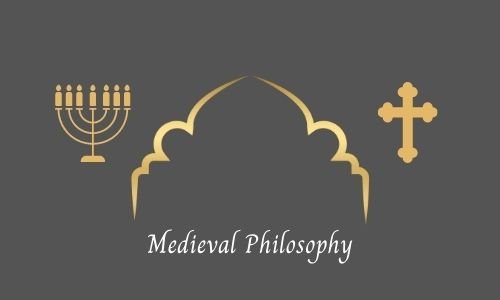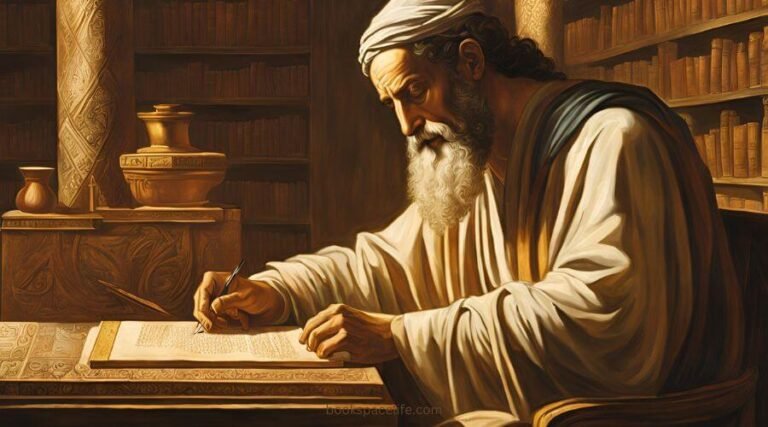Philo of Alexandria
Nasir al-Din al-Tusi: The Philosopher, Scientist, and Polymath of the Islamic Golden Age
Nasir al-Din al-Tusi (1201–1274 CE) was a towering figure in the intellectual world of the medieval Islamic period.
A polymath who made significant contributions to a wide range of fields, including philosophy, astronomy, mathematics, ethics, and theology, al-Tusi is celebrated as one of the leading scholars of the Islamic Golden Age.
Born in Tus, a city in northeastern Iran, al-Tusi’s scholarship bridged the gap between ancient Greek thought, Islamic intellectual tradition, and emerging medieval scientific ideas.
His influence would extend far beyond his lifetime, leaving an enduring legacy in both the Islamic and Western intellectual traditions.
Al-Tusi’s work is noted for its remarkable breadth, encompassing areas as diverse as philosophy, logic, astronomy, and ethics.
His contributions to astronomy, in particular, were groundbreaking, and his influence on medieval Islamic and Western science is profound.
However, his philosophical writings also remain highly influential, combining traditional Islamic thought with original ideas that continue to be studied to this day.
Table of Contents
(1) Early Life and Education
Nasir al-Din al-Tusi was born in 1201 CE in Tus, a city that was an important cultural and intellectual center in northeastern Iran during the medieval period.
Al-Tusi’s family was well-established, and he received an excellent education from an early age. His early studies included theology, logic, mathematics, astronomy, and philosophy.
The educational environment in Tus was rich in intellectual pursuits, and al-Tusi’s talents were nurtured by prominent scholars who recognized his aptitude in various disciplines.
At the age of 17, al-Tusi moved to Baghdad, the heart of the Islamic intellectual world at the time, to further his education.
There, he studied under prominent scholars and philosophers, immersing himself in the works of Greek philosophers like Aristotle and Ptolemy, as well as the intellectual currents of Islamic thinkers such as Al-Farabi, Ibn Sina (Avicenna), and Ibn Rushd (Averroes).
Al-Tusi was particularly drawn to philosophy and astronomy, and his early education laid the foundation for the brilliant career that would follow.
(2) Travels and Influence of Al-Tusi’s Works
Al-Tusi’s intellectual journey was not confined to Baghdad. Throughout his life, he traveled to a number of important cities in the Islamic world, including Nishapur and Samarkand, where he encountered diverse philosophical and scientific traditions.
However, his most significant period of intellectual development took place during his time at the Mongol court.
In the 1250s, after the Mongol invasion of the Islamic world, al-Tusi became a key figure in the court of Hulagu Khan, the Mongol ruler of the Ilkhanate.
Hulagu Khan, who had a keen interest in astronomy and science, recognized al-Tusi’s expertise and appointed him to the court in Maragheh, in modern-day Iran, where al-Tusi would oversee the construction of the Maragheh Observatory.
This observatory, which became one of the most advanced in the world at the time, would be central to al-Tusi’s astronomical work and played a critical role in advancing the study of planetary motion and cosmology.
During his time at the observatory, al-Tusi worked alongside some of the most prominent scholars of the time, helping to further refine Ptolemaic models of the cosmos and developing new methods of astronomical observation.
His work in astronomy not only advanced the scientific understanding of his time but also had far-reaching effects on later Western scientists, including Copernicus and Kepler.
(3) Al-Tusi’s Philosophy
Al-Tusi’s philosophical work is rooted in the Islamic intellectual tradition, which combines elements of Greek philosophy, especially the works of Aristotle and Plato, with Islamic metaphysical and theological concepts.
As a student of Avicenna (Ibn Sina), al-Tusi was deeply influenced by the metaphysical and ethical theories of Neoplatonism and Aristotelianism as interpreted by Muslim philosophers. However, al-Tusi’s original contributions to philosophy and science were marked by his ability to adapt and build upon these traditions.
One of al-Tusi’s most important philosophical contributions was his work on ethical theory. In his major philosophical treatise, “Akhlaq-i-Nasiri” (The Nasirian Ethics), al-Tusi explored the nature of virtue, happiness, and the good life from an Islamic perspective.
Drawing upon the ethical works of Aristotle and Ibn Sina, al-Tusi argued that human perfection is achieved through the cultivation of both intellectual and moral virtues.
According to al-Tusi, true happiness is the result of achieving knowledge of the divine, and rationality plays a key role in moral and spiritual development.
His ethical philosophy emphasized the importance of reason, self-control, and virtue as necessary means of attaining a harmonious life.
In addition to his ethical philosophy, al-Tusi also wrote extensively on logic and epistemology.
His works on logic, particularly his “al-Tahrir al-Mantiq” (The Refinement of Logic), were highly influential and contributed to the development of Islamic logic.
Al-Tusi introduced new logical tools and clarified many of the ideas of his predecessors. His approach to logic was methodical and systematic, and he sought to reconcile the classical tradition of Aristotelian logic with Islamic metaphysical thought.
His work on logic would have a lasting impact on both Islamic and Western philosophy.
(4) Contributions to Astronomy and Science
Perhaps al-Tusi’s most lasting contribution to medieval thought lies in the field of astronomy. His work on the Ptolemaic system helped to refine and improve earlier models of planetary motion.
Al-Tusi’s groundbreaking work was instrumental in the development of planetary theory and had profound implications for the Scientific Revolution in Europe centuries later.
One of al-Tusi’s most significant contributions to astronomy was the development of the Tusi couple, a mathematical device that allowed for the accurate description of the motion of planets in a way that corrected certain anomalies in Ptolemaic astronomy.
The Tusi couple was a geometrical tool that helped explain the retrograde motion of planets, a phenomenon that had long puzzled astronomers.
By introducing this device, al-Tusi made it possible to explain planetary motion more precisely and without relying on the eccentricities and epicycles that were part of the traditional Ptolemaic system.
In addition to his work on planetary motion, al-Tusi also wrote extensively on the nature of the universe, cosmology, and the spherical geometry that underpinned much of medieval astronomical thought.
His works on these topics were influential not only in the Islamic world but also in the development of Western astronomy.
His ideas were later taken up by European scientists, including Johannes Kepler, who would build upon al-Tusi’s work in the development of his own theories of planetary motion.
Al-Tusi’s Maragheh Observatory became one of the most important centers for astronomical research in the medieval world, attracting scholars from across the Islamic empire.
The observatory’s instruments and methods of observation were some of the most advanced of the time, and it helped to refine and expand upon many of the astronomical models of the ancient world.
(5) Legacy and Impact
Nasir al-Din al-Tusi’s contributions to philosophy, science, and ethics left an indelible mark on both Islamic and Western intellectual traditions.
His works were highly influential in the Islamic world, and his ideas on astronomy, logic, and ethics continued to shape intellectual discourse for centuries after his death.
Al-Tusi’s influence also extended to the West, where his work on astronomy and logic was read and studied by later European scholars.
His mathematical innovations, particularly the Tusi couple, were an important precursor to the developments of the Scientific Revolution, influencing figures such as Copernicus and Kepler.
In the field of philosophy, al-Tusi’s ideas on ethics, metaphysics, and logic contributed to the Islamic philosophical tradition, influencing scholars such as Ibn Khaldun and Mulla Sadra.
Al-Tusi’s works continue to be studied today by scholars of philosophy, astronomy, and Islamic intellectual history.
His contributions to the development of scientific reasoning, logical analysis, and ethical theory remain relevant and influential.
As a polymath who mastered diverse fields of knowledge, Nasir al-Din al-Tusi stands as a symbol of the intellectual vitality of the medieval Islamic world and its lasting legacy in the development of human thought.
In conclusion, Nasir al-Din al-Tusi’s life and work exemplify the intellectual achievements of the Islamic Golden Age.
Through his contributions to philosophy, astronomy, and logic, al-Tusi bridged the classical and medieval worlds, shaping the trajectory of both Islamic and Western thought.
His legacy endures as a testament to the enduring power of reason, observation, and intellectual curiosity in the quest for understanding the cosmos and the human condition.








